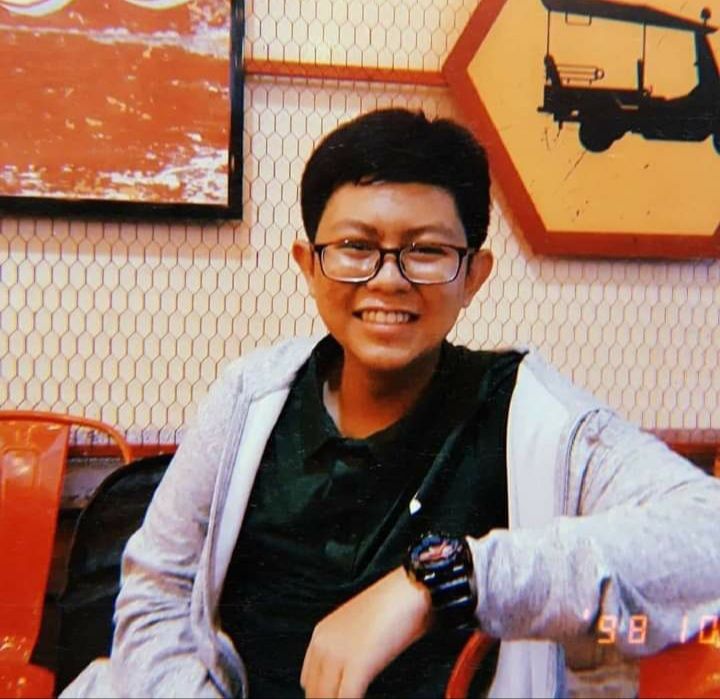This essay was written by Phone Min Thant, age 17, from Burma/Myanmar in response to the 2021 Global Voices essay contest in Southeast Asia. Phone was awarded honorable mention for this entry.

“No one dares steal the golden cauldron of knowledge.” This simple and generic proverb would surely have been heard by those who have received schooling under the “Moral, Discipline, Education” banner of Burmese education. Indeed, Burma’s education system is a heaven where students in white and green uniforms study so-called subjects ranging from English and Mathematics to Arts and Music at no monetary cost, and where all students can freely shape their own futures and attain their dreams. The truth lies far from this surreal perception.
Burma is where the wealth of the past intersects the poverty of the present, where skyscrapers exist alongside shantytowns and where chandelier-lit residences shine upon candle-lit bedrooms. In this world of stark contrasts, it is no longer surprising to see that this obscure Southeast Asian country holds one of the least developed and the most unequal education systems in the region. Although academic inequality is an inevitable issue everywhere in this modern world, the inequality of Burmese education has a long history. Neglected for decades under military rule, our education system, once among the best in Asia, has completely fallen apart. Consequently, the education system in Burma has been supplemented by private tutoring programs where money paves a smooth tarmac road towards a secured future for some, while the impoverished are forced to walk barefoot over gravel-strewn pathways to dreams they are uncertain to achieve.
In a bitter irony, the Burmese education system literally transformed the “gold cauldron” of knowledge from a proverb to dystopian reality. Most academic inequalities in Burma are typically monetarily motivated. A few instances from my own experiences of being a former student in a state school would prove this statement. For example, teachers would–usually covertly–provide tutoring outside school hours where anyone who could afford the extra fees could attend. In those classes, teachers would normally go above and beyond what is taught at school, making sure that those who attend and pay their private tuitions receive the best of the supposedly free state education. Those who are unable to afford these classes face academic difficulties and are looked unfavorably upon by teachers. Students that can afford lavish gifts for teachers and those with powerful parents get showered with an almost unnatural level of favors by their educators.
Students also have little say in selecting which schools and universities they can attend. Only those students deemed “worthy” enough can study in the best institutions in the country. This seemingly meritocratic system seems suitable for a nation desperately needing the best to succeed. The problem is that students who don’t get a chance to attend the best schools have little chance of reaching their full potential and talents since their schools are regarded as less prestigious by society. It is common in the country to see potential doctors’ and engineers’ dreams of a developed nation slashed by an admission into a Literature program they didn’t wish to complete. Money and power dictate whose dreams can be achieved and whose dreams can be discarded. As a friend of mine from a state school once told me, “Merit is not weighed by logic or skills but by the heaviness of Kyat bills.”
Education should always be a paradise where dreams freely flourish, talent triumphs over wealth, and every student enjoys the soup from the cauldron of knowledge equally. If the established system cannot provide this education, then we, the regular citizenry must step in. With such belief, I have taken part in a student-led organization aimed at providing free and accessible education to any willing youth in the country. The organization has a wide-ranging audience throughout the country, and has routinely provided internet-based academic resources which have included issues ranging from feminism to global affairs. Most courses are provided in English with Burmese translations. We also provide online teaching to help youth fluently utilize the English language daily. In a year, we have gained over 1000 followers on both Facebook and Instagram. Since March 2020, the country, hit by a pandemic, has been unable to switch to a nationwide online-schooling program. With a military coup d’état in 2021, the state education system has collapsed, preventing two full years of schooling to state school students throughout the entire nation. In these times, providing accessible quality education has become a crucial duty.
However, our organization faces several problems. First, the impossibility of physical classes due to the current situation of the country and lack of reliable internet limits our reach. The next problem is a lack of international partners with our organization. Although we have teamed up with local groups bearing similar objectives, a lack of international stakeholders severely hinders our reach and recognition and it limits the amount of knowledge we can provide. The third problem is a lack of funding. As such, we require cooperation from international organizations that would be willing to provide mutual aid in funding, providing resources and promoting our organization.
In an unstable world where education is certain only for the wealthy and the dreams of the majority are beyond reach, the country’s development becomes ignored like street trash. Determination has allowed us to challenge the evil of this inequity and fight for the future of our country’s youth. Every student, whoever they are, must be allowed to achieve their dreams even if these dreams lie amongst the cosmos.